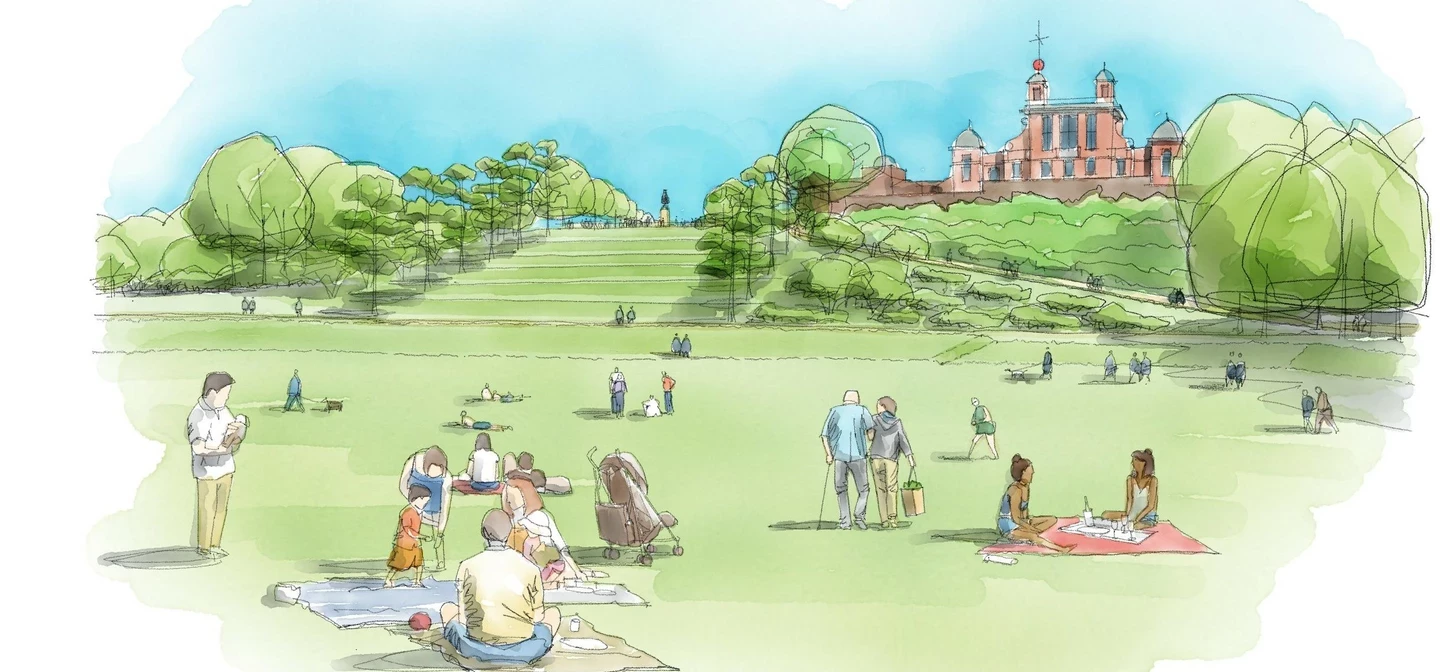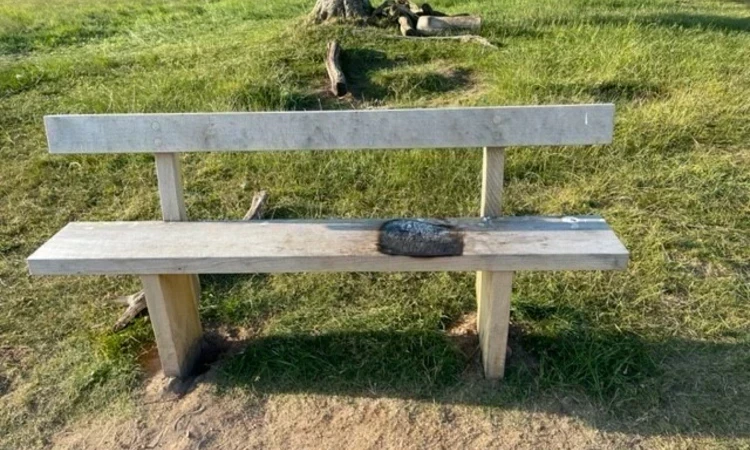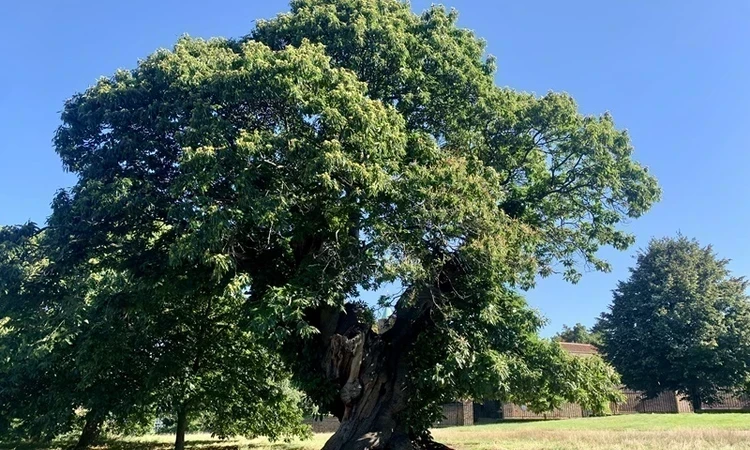
The Royal Parks embarks on second phase of Greenwich Park’s restoration
This autumn, The Royal Parks charity will embark on the second phase of a project to restore Greenwich Park’s disappearing 17th century landscape.
It will also create new facilities to service the park’s five million annual visitors, including an improved viewing platform by the General Wolfe statue.
Greenwich Park Revealed is a four-year project to protect, revive, reveal and future-proof the park, part of the Maritime Greenwich World Heritage Site, for the local community and park visitors to discover and enjoy for generations to come.
The charity, which manages London’s eight Royal Parks, is funding the project alongside a £4.5m grant from the Parks for People programme joint funded by The National Lottery Heritage Fund and The National Lottery Community Fund.
Greenwich Park hosts a unique, formal landscape, commissioned by Charles II in the 17th century and designed by French landscape architect André Le Nôtre - best known for designing the world-famous Versailles gardens, outside Paris. However, centuries of footfall have taken their toll on the terrain.
A new, landscaped viewing platform at the famous viewpoint by the General Wolfe Statue will transform a congested area into an accessible, enlarged public space. The platform will be extended back to provide a piazza-style, car-free zone for public enjoyment and cultural events, with a new catering kiosk and room for outdoor seating.
The eroded landscape features of the ‘Grand Ascent’ – giant, grass steps on Observatory Hill, which lead up to the Royal Observatory – will be expertly redefined and returned to their original splendour.
The path alongside the bottom of the hill will be widened to increase accessibility. A tarmac path cutting diagonally across the Queen’s Field will be removed and reseeded, creating new green space – and reviving the original symmetrical layout.
Damaged and declining Turkey oak trees and severely damaged beech trees along the western tree avenues will be replanted with semi-mature, more-resilient elm and lime trees. This follows the restoration of the eastern tree avenue last year. The banked terraces upon which the trees are planted, which have slumped over the centuries, will also be expertly landscaped and redefined.
Clare Lanes, Greenwich Park Manager, The Royal Parks charity, said:
“It’s very exciting to be on the cusp of starting the next phase of restoration work to bring to life the disappearing heritage of this much-loved space.
“We can’t wait to welcome everyone in 2024, to enjoy the restored park at its very best – and to have their very special ‘Instagram moment’ of the view from the General Wolfe statue. The park is going to look wonderful!
“While we deliver the project, we’ll do our best to keep disruption to a minimum, but there will be some path closures. Please bear with us – we’ll update you with alternative routes so you can continue to enjoy the park as much as possible.”
As well as protecting the park’s heritage, the project will expand valuable acid grassland habitats, supporting birds and pollinators, such as ground-nesting bees and wasps. The restored tree avenues will also provide a foraging habitat and movement corridors for birds, bats, and other wildlife, for years to come.
Stuart McLeod, Director of England - London & South at The National Lottery Heritage Fund, said:
“Regenerating and conserving public parks remains a high priority for us as we commit to promoting more environmentally sustainable heritage that increases people’s connection to nature and the world around them. Thanks to National Lottery players, we are proud to support The Royal Parks in their renovation of Greenwich Park.”
Chris Laine, Landscape Architect at Historic England said:
“Greenwich Park is one of the country’s most important designed landscapes and an historic site of international significance. Historic England has worked closely with The Royal Parks over the past seven years as it undertook considerable research, careful planning, and extensive engagement with experts and community alike to develop its Greenwich Park Revealed project. We are thrilled to have reached this exciting stage and look forward to seeing the park revitalised and made more resilient, with its formal landscape presented in all its intended glory.”
Work is also underway to transform the private Vanbrugh Yard into new public space. This includes brand new community facilities, including a new café with accessible toilets, a volunteer hub, a community garden, and a new learning space in The Wilderness. Restorations to the Flower Garden have already been delivered and included new wildlife-friendly planting. Access to One Tree Hill has been improved with a new pathway, and interpretation has been installed to reveal the viewpoint’s history.
Related Articles
-
 Read
ReadProtect the parks by not using BBQs
We are reminding visitors that BBQs are not permitted in the parks, due to the risk of causing an accidental fire.
-
 Read
ReadVote for Greenwich Park’s shortlisted ‘Tree of the Year 2023
A 360-year-old sweet chestnut tree has been shortlisted for the Woodland Trust’s Tree of the Year competition for 2023.
-
 Read
ReadGreenwich Park’s deer have moved to Richmond Park
Greenwich Park’s herd of fallow and red deer have been relocated to Richmond Park